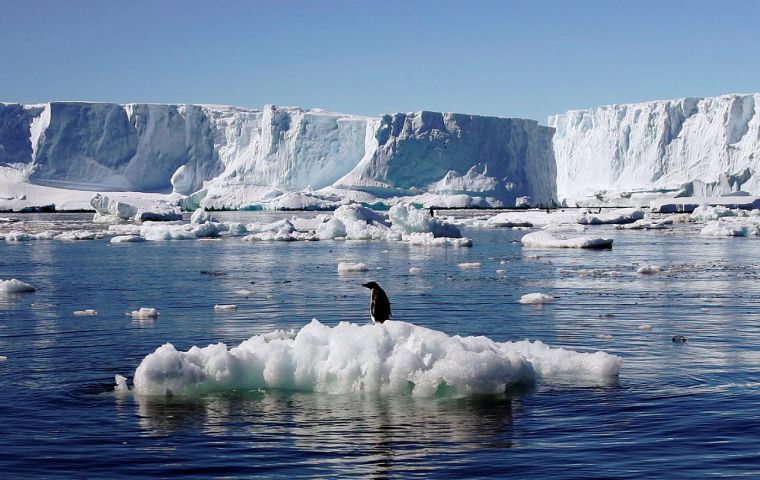MercoPress. South Atlantic News Agency
IPCC reveals global impact of human induced climate change
 The report makes special reference to the global impact of climate change in Antarctica throughout its overview of the most significant effects of global warming
The report makes special reference to the global impact of climate change in Antarctica throughout its overview of the most significant effects of global warming A new report by the UN Intergovernmental Panel on Climate Change (IPCC) published on Monday 28 February, has outlined the causes, impacts, and solutions to climate change.
Published four months after policymakers from around the world met in Glasgow to accelerate action against climate change at COP26, it notes that human-induced climate change is causing dangerous and widespread disruption despite efforts to reduce the risks.
Hoesung Lee, Chair of the IPCC, said: “This report is a dire warning about the consequences of inaction. It shows that climate change is a grave and mounting threat to our well-being and a healthy planet. Our actions today will shape how people adapt and nature responds to increasing climate risks.”
The report makes special reference to the global impact of climate change in Antarctica throughout its overview of the most significant effects of global warming and what can be done to mitigate these.
Professor Michael Meredith, Oceanographer and Science Leader at BAS was recently Coordinating Lead Author for the IPCC Special Report on Oceans and Cryosphere in a Changing Climate.
“The polar regions exert huge influence across all of Planet Earth, through processes such as sea level rise, climate change, and impacts on global ecosystems and food security. Understanding what those influences mean for people and societies is critical, as is developing an understanding of what can be done to adapt to their impacts, and what the limits on adaptation might be. The release of the IPCC Working Group II report is an important step in achieving this,” pointed out Prof Meredith
A key finding of the report is that people and ecosystems least able to cope are being hardest hit by climate change.
In light of this, the IPCC have made several recommendations to global policymakers which focus on climate resilient development and explain how we might avoid the worst effects of climate change in the brief window of time available to us.
Prof Meredith continued, “The report places a strong emphasis on regional aspects of climate change – different communities and societies will be impacted very differently to each other, and there are huge differences in their ability to respond. Action based on science needs to recognize and factor this in. It also outlines key “tipping points” – sudden changes such as the rapid melting of the Greenland or Antarctic ice sheets, or loss of Arctic sea ice – which can generate dramatic shifts in climate change impacts worldwide.
“A key feature to emerge from the report is the incredible urgency that surrounds these issues. It’s still not too late – just – to avoid the worst risks of climate change, but to achieve that will require strong political will matched with rapid action. CoP26 made some progress in that direction, but it needs to be accelerated and intensified urgently”
This is the second of three landmark IPCC reviews, the first of which highlighted the scale of the effect that humans were having on the climate system. For more information and to read both reports visit the IPCC website.




Top Comments
Disclaimer & comment rulesCommenting for this story is now closed.
If you have a Facebook account, become a fan and comment on our Facebook Page!